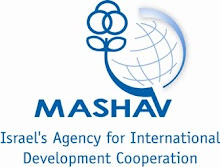
Giving the gift of sight: A non-profit with zero overhead, Israel's Eye from Zion is restoring sight to hundreds of people in developing countries.
Eye from Zion grew out of the vision of Israeli businessman Nati Marcus. Since its founding about three years ago, it has grown into a core group comprising five or six influential Israelis like Hessel. With their help, through missions undertaken by dozens of Israeli doctors who donate their time and expertise, Eye from Zion has restored sight to hundreds of people. With an industry standard tool called a Phaco machine, the Israeli eye doctors use sound waves to blast out a cataract, breaking it into pieces and then sucking it out. Most of the patients who arrive at the mobile clinic are nearly or completely blind in both eyes.







